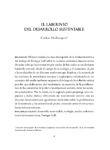
Please use this identifier to cite or link to this item:
http://ricaxcan.uaz.edu.mx/jspui/handle/20.500.11845/302Full metadata record
| DC Field | Value | Language |
|---|---|---|
| dc.contributor.other | 0000-0001-7195-8775 | |
| dc.coverage.spatial | Global | es_ES |
| dc.creator | Mallorquin, Carlos | |
| dc.date.accessioned | 2017-06-09T19:05:19Z | |
| dc.date.available | 2017-06-09T19:05:19Z | |
| dc.date.issued | 2014-01-01 | |
| dc.identifier.issn | 2448-5020 | es_ES |
| dc.identifier.uri | http://hdl.handle.net/20.500.11845/302 | |
| dc.description | This chapter attempts to describe the theoretical evolution of the work of Enrique Leff on the environmental question across several decades; it traces the evolution of his vocabulary, arising from the ecology camp and Marxism, gaining its footing in the production of an utochthonous discourse that supplants many earlier European and Anglo-Saxon notions, culminating in a sui generis concept of the «environment. » Throughout this theoretical evolution, a dislocation is detected in the vocabulary in question, of the problematic of power asymmetries and social relations among productive units. This leads, in the second part, to a proposed response to this «rupture», offering a theoretical marriage with Latin American discourse, equally autochthonous, on the problematic of the economy and power asymmetries, known as Latin American Structuralism. | es_ES |
| dc.description.abstract | El texto intenta dar una descripción de la evolución teórica del trabajo de Enrique Leff sobre la cuestión ambiental durante varias décadas; subraya los itinerarios por medio de los cuales su vocabulario, habiendo iniciado desde el campo de la ecología y el marxismo, da pie a la producción de un discurso autóctono que desplaza a la mayoría de las nociones de procedencia europea y anglosajona culminando en un concepto del medio ambiente sui generis. A lo largo de la evolución teórica percibo una dislocación, del vocabulario en cuestión, de la problemática de las asimetrías de poder y las relaciones sociales entre las unidades productivas. Por lo tanto, en la segunda parte propongo una respuesta a dicha «falta» ofreciendo un matrimonio teórico con un discurso latinoamericano igualmente autóctono sobre la problemática de la economía y las asimetrías de poder, conocido como el estructuralismo latinoamericano. | es_ES |
| dc.language.iso | spa | es_ES |
| dc.publisher | Universidad Autónoma de Zacatecas | es_ES |
| dc.relation | http://www.estudiosdeldesarrollo.mx/ecd/revista.html | es_ES |
| dc.relation.uri | generalPublic | es_ES |
| dc.rights | openAccess | es_ES |
| dc.rights.uri | http://creativecommons.org/licenses/by-nc-sa/3.0/us/ | * |
| dc.source | Observatorio del desarrollo, vol. 4, no. 6, primer semestre. | es_ES |
| dc.subject.classification | CIENCIAS SOCIALES [5] | es_ES |
| dc.subject.other | info:eu-repo/classification/Desarrollo sustentable | |
| dc.subject.other | info:eu-repo/classification/Ecología | |
| dc.subject.other | info:eu-repo/classification/Medio ambiente | |
| dc.subject.other | info:eu-repo/classification/Teoría latinoamericana | |
| dc.subject.other | info:eu-repo/classification/Enrique Leff | |
| dc.title | El laberinto del desarrollo sustentable | es_ES |
| dc.type | info:eu-repo/semantics/article | es_ES |
| Appears in Collections: | *Documentos Académicos*-- UA Estudios del Desarrollo | |
Files in This Item:
| File | Description | Size | Format | |
|---|---|---|---|---|
| Mallorquín - 2014 - El Laberinto del Desarrollo Sustentable.pdf | 2,08 MB | Adobe PDF |  View/Open |
This item is licensed under a Creative Commons License
